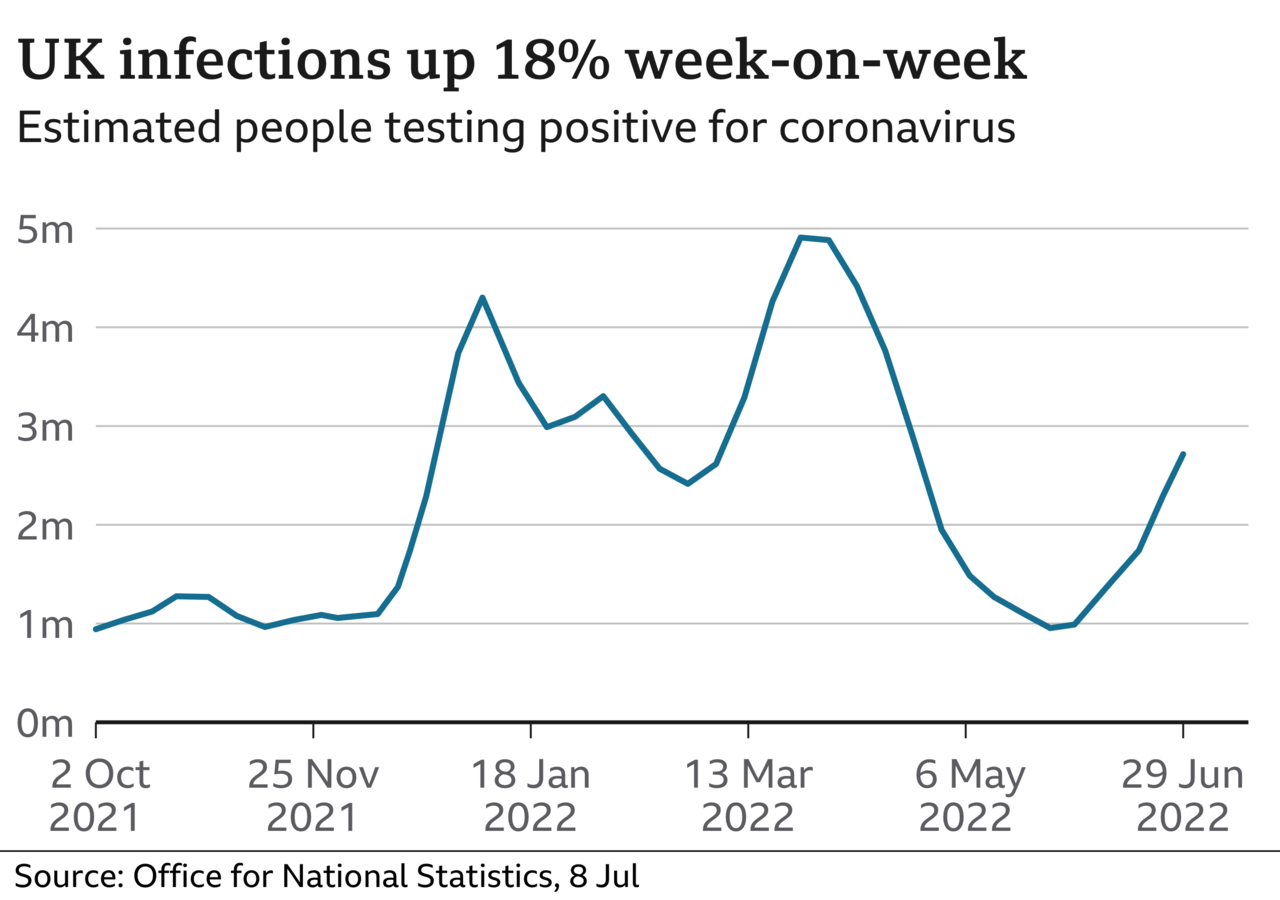
Covid infections hit 2.7 million in UK
An estimated 2.7 million people, or one in 25, has the virus. About one in 30 had the virus in the previous week.
The rise is being driven by fast-spreading sub-variants of Omicron - called BA.4 and BA.5.
People are still able to catch the infection even if they have had Covid before.
But the UK Health Security Agency's (UKHSA) latest analysis shows jabs are helping to protect against serious illness.
Health officials are urging anyone who is eligible but has not yet had a vaccine or booster in the past six months, to get one - particularly people over the age of 75, who are more at risk from serious disease.
In the latest report the ONS estimates Covid rates were:
* One in 25 in England - up from one in 30 the week before
* One in 20 in Wales - up from one in 30
* One in 19 in Northern Ireland - up from one in 25
* One in 17 in Scotland - up from one in 18

The stats are collated by testing thousands of people from UK households - whether or not they have symptoms - to estimate how much virus is around.
Sarah Crofts, who works on the ONS's Covid-19 infection survey, said there was a continued rise across all UK countries, English regions and age groups.
She added: "Scotland continues to have the highest infection rate, although it has recently increased at a slower rate compared to other UK countries. We will continue to monitor the data to see if this recent rise is starting to slow in Scotland."
What's happening in hospitals?
Separate data from the UKHSA shows the number of people in hospital with Covid has risen across all age groups, with the largest increases in people aged 75 and older.
Dr Mary Ramsay, from the UKHSA, said about 16% of people in the over-75 age group had not yet had spring booster vaccines to help protect against severe disease.
She warned there was likely to be a "substantial amount of waning immunity" in older people who have not taken up the booster vaccine on schedule.
In England, on 6 July, there were more than 11,000 people in hospital who had tested positive for Covid.
Data from the other UK nations is not as up-to-date but suggests a similar rise over the last month.
The number of Covid patients in hospital is currently still way below the record high of more than 34,000 in January 2021, during the wave of the Alpha variant of coronavirus.
Not all patients testing positive for Covid in hospital are being treated for it - some are there for another reason, but it can make their care more difficult.
This applies to about two-thirds of patients in hospital at the moment.
The number of Covid patients in intensive care has reached 217 in England, which is an increase from 111 at the start of June.
Back in January 2021, more than 3,700 people needed this type of care at a time where intensive care units were in danger of being overwhelmed.











